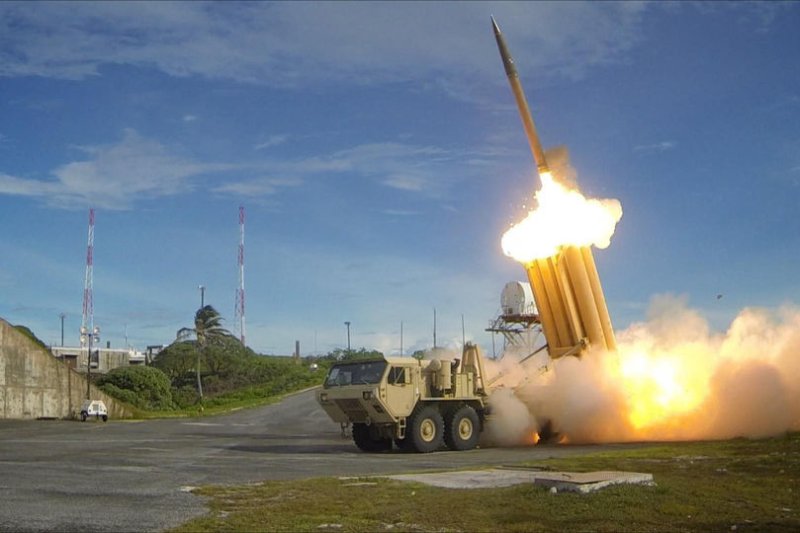The Pentagon is sending equipment that includes one Terminal High Altitude Area Defense (THAAD) interceptor, pictured, to Saudi Arabia in response to heightened tensions in the Persian Gulf region. File Photo by Ralph Scott/DoD/UPI |
License Photo
Oct. 11 (UPI) -- The U.S. Defense Department announced Friday it will send thousands of additional troops and more equipment to Saudi Arabia, in response to months of heightened tensions in the region involving Riyadh and Iran.
Pentagon chief representative Jonathan Hoffman said Defense Secretary Mark Esper authorized sending more support at the behest of the U.S. Central Command, which covers military operations the Middle East and Central Asia. It will include two fighter squadrons, an Air Expeditionary Wing, two missile defense batteries and a Terminal High-Altitude Area Defense system, or THAAD.
"Taken together with other deployments this constitutes an additional 3,000 forces that have been extended or authorized within the last month," Hoffman said in a statement.
"The United States does not seek conflict with the Iranian regime, but we will retain a robust military capability in the region that is ready to respond to any crisis."
Rising tensions in the Persian Gulf region have been stoked by several attacks against various oil tankers in recent months. The U.S. administration, other Western governments and Saudi Arabia have blamed Tehran for some of the strikes.
"It is clear that the Iranians are responsible for the recent attacks on Saudi Arabian oil facilities," Esper told reporters Friday. "Our international partners agree -- including the United Kingdom, France and Germany."
"Iran's continued malign behavior is part of its larger campaign to destabilize the Middle East and disrupt the global economy. Iran's attempts to use terror, intimidation and military force to advance its interests are inconsistent with international norms."
Hoffman said Esper informed Saudi Crown Prince Muhammad bin Salman Friday of the decision and called on European allies and "other like-minded countries" to follow suit.
"Since May, the Department of Defense has increased the number of forces by approximately 14,000 to the U.S. Central Command area of responsibility as an investment into regional security," Hoffman said.
The U.S. aircraft carrier USS Abraham Lincoln is already in the Gulf region and will remain until the end of the year.















